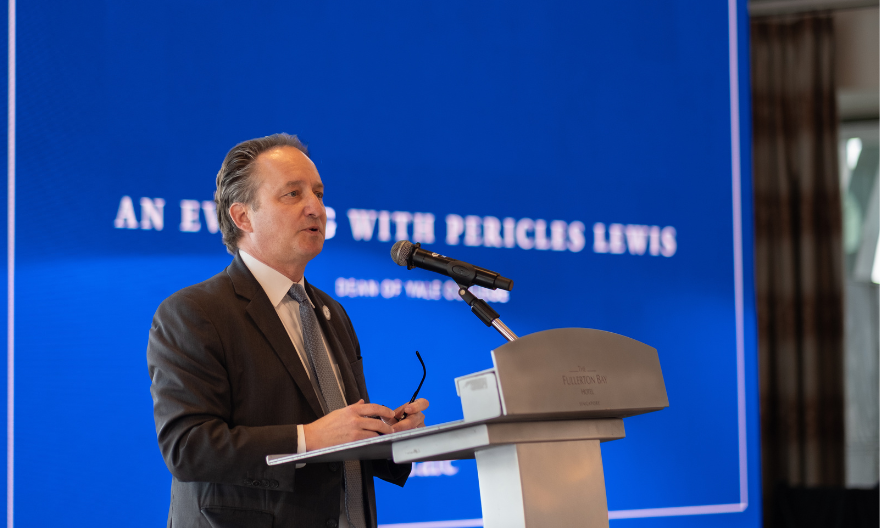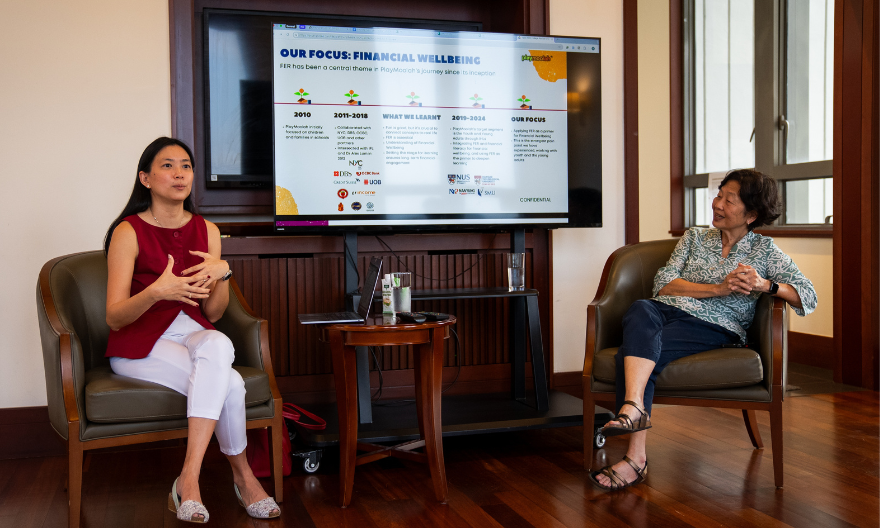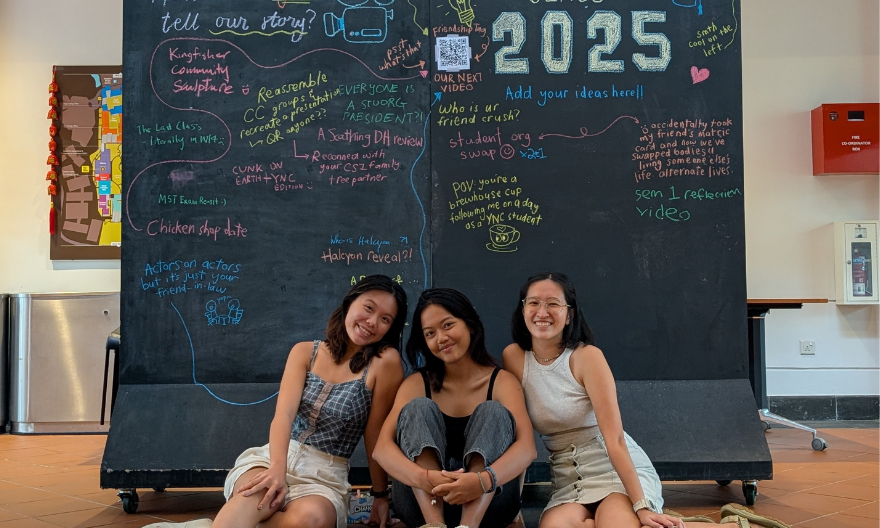Saving Democracy from Itself: The latest instalment of the ‘Dinner Conversation Series’
Bringing the Yale-NUS community together to learn about faculty research over good food and friendly dialogue

Ever since its inception, the Dinner Conversation Series has aimed to bring subject experts into an informal yet enriching conversation with students over a meal. The series featured Yale-NUS faculty members and visiting speakers who shared their various research topics to broaden perspectives on campus.
The series began in Academic Year (AY) 2019-2020 with Residential Fellows moderating a conversation with faculty discussants about the National Security Law of Hong Kong. Since then, conversations have ranged from the philosophy behind bitcoin to a guide to studying in the Renaissance.
In the latest instalment of the Dinner Conversation Series this semester, Yale-NUS Assistant Professor of Social Sciences (Philosophy, Politics, and Economics) Benjamin Schupmann dived into the threats faced by democracy today.
Asst Prof Schupmann, who has an upcoming book on the topic, began the conversation by setting the context about how the norms and institutions of democracy were being thwarted by the very leaders who had been democratically elected into office. As a result, a pertinent question came to the fore: how were democracies to save themselves without becoming undemocratic in the process?
In a conversation that discussed Plato’s philosopher-king, to how technology undermined democratic processes around the world, there were many memorable takeaways from the event.
Maleeka Hassan (Class of 2024), a Philosophy, Politics, and Economics (PPE) major, shared, “I found the discussion of undemocratic means to prop up democracies really interesting, especially the example of militant democracies.” She added that it was illuminating to discuss the various flaws of democracies such as its over-reliance on voter-systems.
Meanwhile, Shao Ming Lee (Class of 2024), a PPE major, enjoyed the breadth of topics that emerged due to the diversity of participants present. He remarked, “While the conversation started off with a dialogue on the value of mechanisms of democratic self-defence, the diverse backgrounds of students and faculty present meant that we were also able to discuss other questions related to democracy.” He added that he especially appreciated the platform created by the Dinner Conversation Series. He shared, “Asst Prof Schupmann’s book is an innovative text in democratic thought, and I particularly appreciated that everyone could have such a fruitful discussion on a faculty member’s work directly!”
When asked about what he most enjoyed about the event, Asst Prof Schupmann shared, “It was really nice to see so many students interested in such a wide range of important topics and challenges related to politics. I hope to see them in courses with me in the future so we can continue the discussion.”
Previous events in the series this semester included conversations led by Yale-NUS Associate Professor of Humanities (Philosophy) and Head of Studies, Philosophy, Matthew D Walker as well as Yale-NUS Lecturer of Science (Mathematics and Data Science) Zach Pang. Assoc Prof Walker discussed the possibility of immortality and how different forms of immortality might look like according to Plato’s Socrates while Lecturer Pang focused on the future of biotechnology especially with the emergence of Artificial Intelligence (AI). Both talks were fruitful discussions of intellectually riveting topics.
Rector and Associate Professor of Science (Life Sciences) Khoo Hoon Eng hopes to continue the tradition of the Dinner Conversation Series for as long as possible. She said, “We will keep holding these Dinner Conversations. Befitting the liberal arts curriculum at Yale-NUS, we will continue to invite faculty and other guests to have a conversation about a topic or issue they care deeply about, which we know that our community would learn from and enjoy.”




